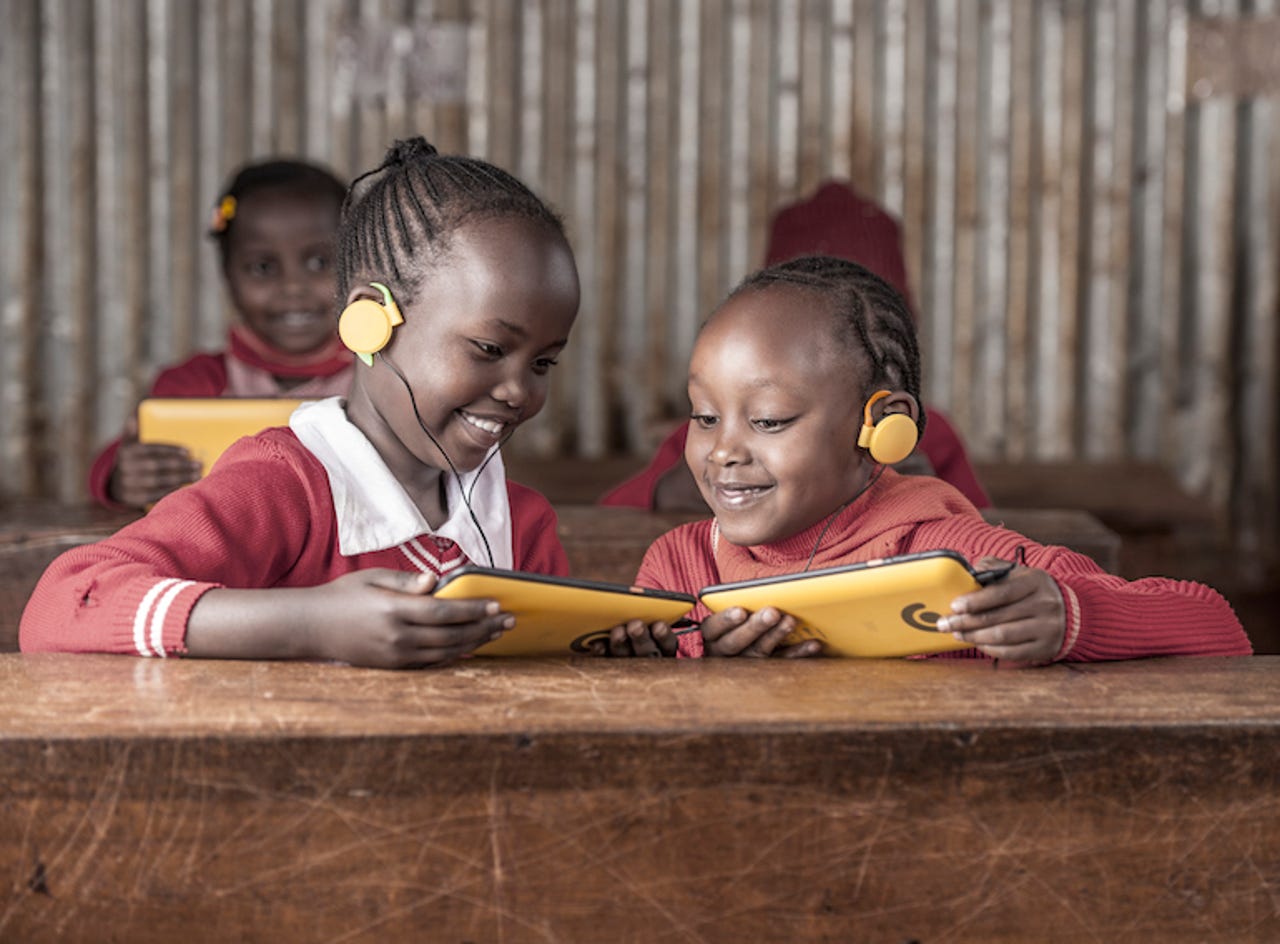What BRCK did next: Super-tough Android tablets for African schools


The Kenyan-designed kit is the latest piece of hardware from the people behind crisis-mapping software Ushahidi, who hope it will be used to bring internet connectivity and digital learning materials to poor rural schools across Africa.
One of their earlier projects, BRCK, is a 3G modem/router designed for rural communities and NGOs alike, enabling them to quickly set up a network with an internet connection in tough conditions all over the world. It made headlines when it achieved a successful launch on Kickstarter a couple of years ago. Now BRCK is at the heart of the Kio Kit, providing connectivity and - thanks to a new Raspberry Pi add-on - a mini-server that provides storage for digital textbooks and cached internet resources like Wikipedia for Schools.
Read this
The BRCK family has also been extended with the release of the Kio Android tablet. It's not a particularly high-powered device: it's built around Intel's SOFIA 3G Atom processor, comes with just 1GB of RAM and 8GB of storage, and has a seven-inch screen with a resolution of 1024x600 pixels.
What Kio tablets are, however, is very tough. The bright yellow case is rubberised and designed to survive not just dry and dusty conditions in rural schools, but also handling by the first graders at whom they are targeted. At $99 a pop, they're relatively affordable too and - in a coup for the BRCK team - have been designed and assembled locally too.
One key feature of the Kio tablets is that they can be charged wirelessly, so they can be dropped into the flight case to recharge, without the need to fiddle with cables.
The digital 'classroom in a box' idea isn't anything new - local Apple distributors across the continent sell very similar looking cases packed with iPads which are often purchased by corporates on behalf of underprivileged schools as part of CSR obligations. Even so, the Kio Kit is, arguably, the most creative and advanced take on the idea yet.
And there's certainly a market for it. All across the continent there's been a drive to put tablets and laptops in schools, with greater or lesser success. Indeed, Kenya itself launched a highly ambitious program to digitise classrooms on a national level in 2013 - only for the project to stall amid legal battles over procurement.
A new program which will focus on setting up computer labs rather than getting schools to go paperless is due to kick off soon, but BRCK co-founder Erik Hersman says that he doesn't want BRCK Kio Kit to be thought of as a Kenyan project.
"Kenya is our backyard, so of course we start here," Hersman says. "While the Kenya laptop/tablet project is one of the many programs around the continent that BRCK is interested in, our primary focus lies in deploying digital education solutions to millions of children across the continent."
Read more